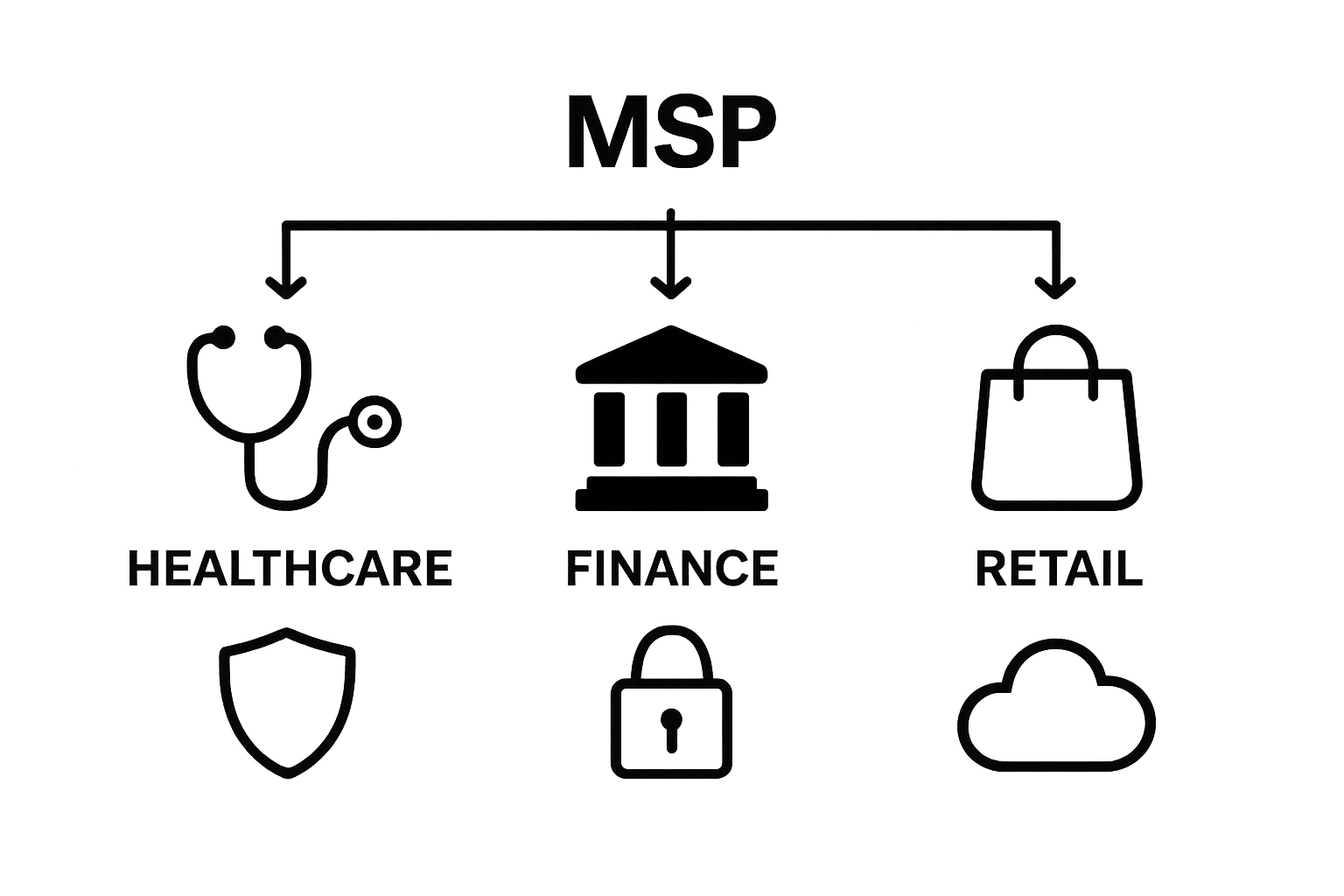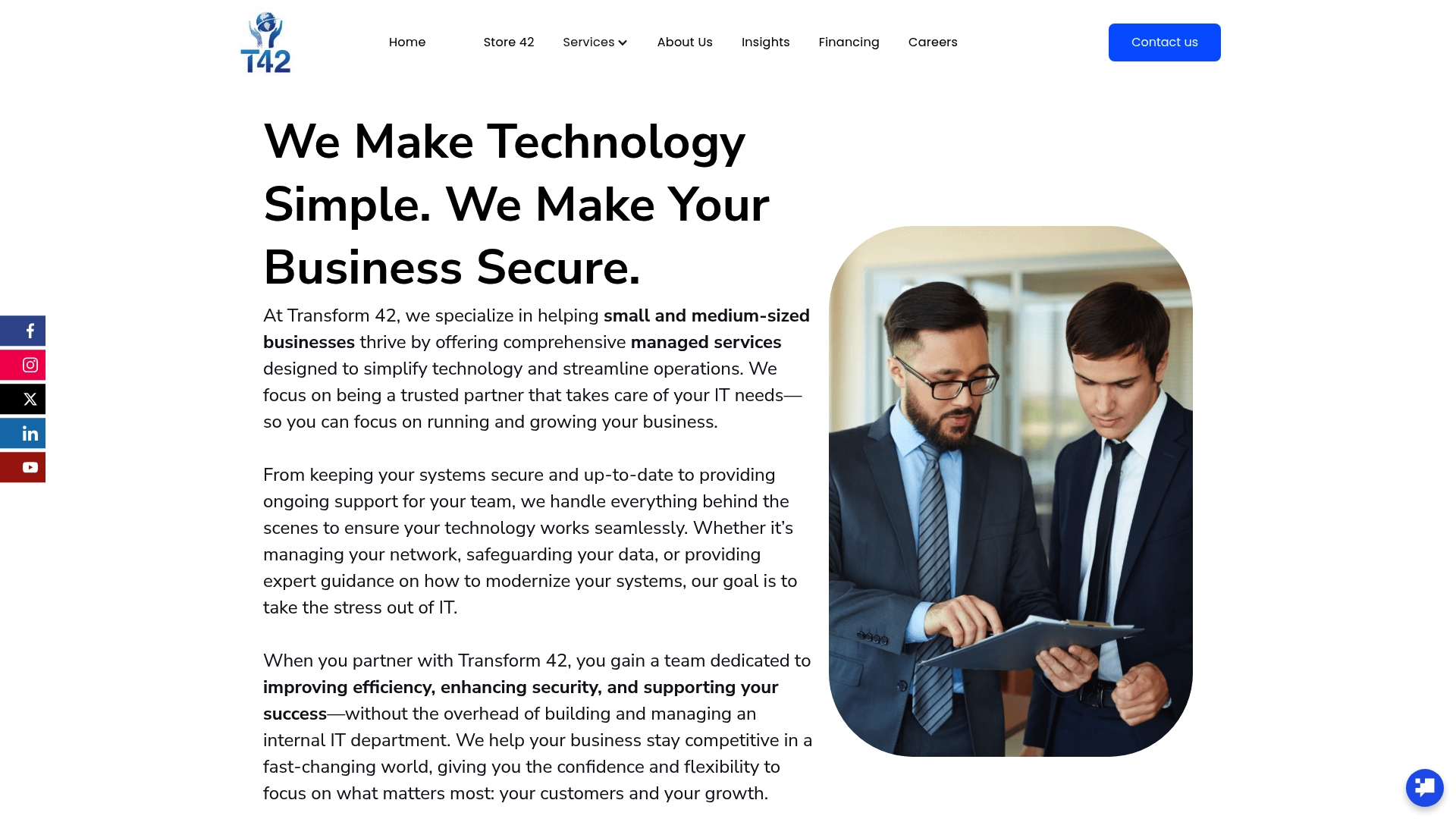
Every business relies on technology to stay efficient and competitive. That sounds straightforward, but the details get complicated fast. A Deloitte study found that companies using managed services can cut operational costs by up to 60 percent. Most people think these providers just fix things when they’re broken. The real story is that they actively prevent problems, manage security, and drive innovation before anyone even notices an issue.
TakeawayExplanationMSPs enhance operational efficiency.Managed Services Providers improve business efficiency by managing IT complexity, allowing focus on core objectives.Cost savings through outsourcing technology.Businesses can reduce expenses by outsourcing IT, avoiding high overhead of an internal IT team.Proactive cybersecurity management is essential.MSPs implement robust cybersecurity measures, reducing vulnerabilities and ensuring regulatory compliance.Predictable costs improve budgeting.Subscription-based services from MSPs offer predictable monthly expenses for technology management.AI and automation are transforming services.Advanced technologies like AI are changing MSP offerings, enhancing predictive maintenance and threat detection.
Managed Services Providers (MSPs) are specialized technology partners that handle complex IT infrastructure and technology management for businesses. These professionals take responsibility for maintaining, monitoring, and optimizing an organization’s technological ecosystem, allowing companies to focus on their core business objectives.
MSPs deliver comprehensive technology solutions that go far beyond traditional IT support. According to research from Gartner, they provide strategic technological management that helps businesses reduce operational risks and improve efficiency.
Their primary responsibilities include:
Unlike traditional break-fix IT support models, MSPs operate as strategic technology partners. They offer predictable, subscription-based services that provide businesses with scalable and cost-effective technology management. By outsourcing complex technological responsibilities, organizations can allocate internal resources more effectively and access advanced expertise without maintaining a full internal IT department.
MSPs utilize advanced monitoring tools and experienced professionals to deliver continuous technological oversight, ensuring that businesses remain technologically competitive and secure in an increasingly complex digital landscape.
In today’s rapidly evolving technological landscape, businesses face increasing complexity in managing their IT infrastructure. Managed Services have emerged as a critical solution for organizations seeking to optimize their technological capabilities while maintaining operational efficiency and competitive advantage.
According to research from Deloitte, businesses leveraging managed services can significantly reduce operational costs and improve strategic technology investments. By outsourcing complex technological responsibilities, organizations gain access to expert resources without the substantial overhead of maintaining a full internal IT department.
Key financial benefits include:
Managed Services Providers play a crucial role in protecting businesses from technological vulnerabilities. They implement robust cybersecurity protocols, ensure regulatory compliance, and provide continuous monitoring that dramatically reduces potential security risks. Professional technology management means businesses can focus on their core objectives while maintaining a secure and efficient technological environment.
Businesses gain strategic advantages through professional managed services, transforming technology from a potential liability into a powerful competitive tool. By partnering with experienced MSPs, organizations can navigate complex technological challenges with confidence and agility.
Managed Services operate through a sophisticated ecosystem of technological management and strategic partnership, enabling businesses to transform their IT infrastructure into a dynamic, responsive, and secure environment. The framework goes beyond traditional support models, offering comprehensive technological oversight and proactive management.
According to research from Gartner, MSPs utilize a structured approach to technology management. The core of managed services is a service level agreement (SLA) that defines precise expectations, performance metrics, and technological responsibilities.
Key components of the service delivery model include:
Managed Services Providers implement advanced monitoring tools and frameworks that provide real-time insights into an organization’s technological ecosystem.
Below is a table summarizing the key components of a Managed Services Provider’s service delivery model for easier reference.
ComponentDescriptionService Level Agreement (SLA)Defines expectations, performance metrics, and technological dutiesTechnology AssessmentComprehensive evaluation of existing IT infrastructureCustomized PlanningInfrastructure design tailored to business needsContinuous MonitoringOngoing system tracking to detect and address issues earlyPredictive MaintenanceProactive updates and optimizations before failures occurIncident Response ProtocolsRapid reaction plans to resolve IT disruptions
The monitoring process involves sophisticated tracking of network performance, security vulnerabilities, system health, and potential risks.
By maintaining continuous technological surveillance, MSPs ensure businesses can operate with minimal interruptions and maximum efficiency. This approach transforms technology from a potential liability into a strategic asset that drives business growth and innovation.
Managed Services Providers (MSPs) have become integral across multiple industries, transforming technological capabilities and enabling businesses to innovate more effectively. From healthcare to finance, these technology partners deliver specialized solutions that address complex operational challenges.
According to research from McKinsey, MSPs offer tailored technological strategies that meet unique sector requirements. Different industries leverage managed services to address specific technological needs and regulatory compliance challenges.
Key industry applications include:

MSPs enable businesses to implement sophisticated technological solutions without substantial upfront investments. By providing flexible, subscription-based services, organizations can rapidly adapt their technological capabilities to changing market demands. This approach allows companies to access enterprise-grade technologies that would traditionally be cost-prohibitive for smaller organizations.
Through strategic partnerships, MSPs help businesses transform technological challenges into competitive advantages, delivering robust, secure, and efficient technological ecosystems that support sustainable growth and innovation.
This table compares how different industries leverage Managed Services Providers to meet their specific technology and compliance needs.
IndustryKey MSP ApplicationHealthcarePatient data security, HIPAA complianceFinancial ServicesComplex cybersecurity, regulatory reportingRetailOmnichannel technology infrastructureManufacturingSupply chain and production technology optimizationEducationSupporting remote learning, digital transformation

The managed services landscape is rapidly evolving, driven by technological advancements and changing business requirements. As organizations seek more agile, intelligent, and secure technological solutions, Managed Services Providers (MSPs) are transforming their approaches to meet emerging challenges and opportunities.
According to research from Forrester, artificial intelligence is becoming a cornerstone of next-generation managed services. AI-powered technologies enable predictive maintenance, intelligent threat detection, and automated system optimization, fundamentally changing how technological infrastructure is managed.
Key AI and automation innovations include:
The future of managed services is increasingly centered on flexible, scalable cloud-native architectures. Hybrid infrastructure models that seamlessly integrate on-premises and cloud environments are becoming standard, allowing businesses to optimize performance, cost, and security.
Managed Services Providers are positioning themselves as strategic technology partners, offering sophisticated solutions that go beyond traditional support models. By leveraging emerging technologies and adaptive service frameworks, they are helping businesses navigate complex technological landscapes with unprecedented agility and intelligence.
Is your organization struggling with the demands of constant network monitoring, cybersecurity threats, or unpredictable IT costs? The article highlighted key challenges faced by businesses today. Navigating complex IT management, keeping data secure, and balancing technology budgets can feel overwhelming. At Transform 42, we understand how proactively managed services can transform technology pain points into real business advantages. Our experts monitor your systems around the clock, implement the latest security protocols, and keep your infrastructure updated so you can stay focused on what matters most.

Take the stress out of IT now. Discover how our fully managed IT services can help your business or nonprofit achieve more with fewer technology headaches. Explore our solutions and let us show you a smarter way forward. Visit Transform 42 to get started today while your next big opportunity is within reach.
Managed Services Providers (MSPs) are specialized technology partners that manage and optimize a business’s IT infrastructure, ensuring proactive monitoring, cybersecurity, and compliance while allowing companies to focus on their core objectives.
MSPs help lower operational costs by offering predictable, subscription-based services, reducing the need for significant upfront capital investments in IT infrastructure, and minimizing recruitment and training expenses for specialized IT staff.
The core components of an MSP’s service delivery model include a service level agreement (SLA), comprehensive technology assessments, continuous monitoring and management, predictive maintenance, and rapid incident response protocols.
MSPs implement robust cybersecurity measures, continuous monitoring for vulnerabilities, and ensure regulatory compliance to protect businesses from potential security threats and vulnerabilities in their technology infrastructure.